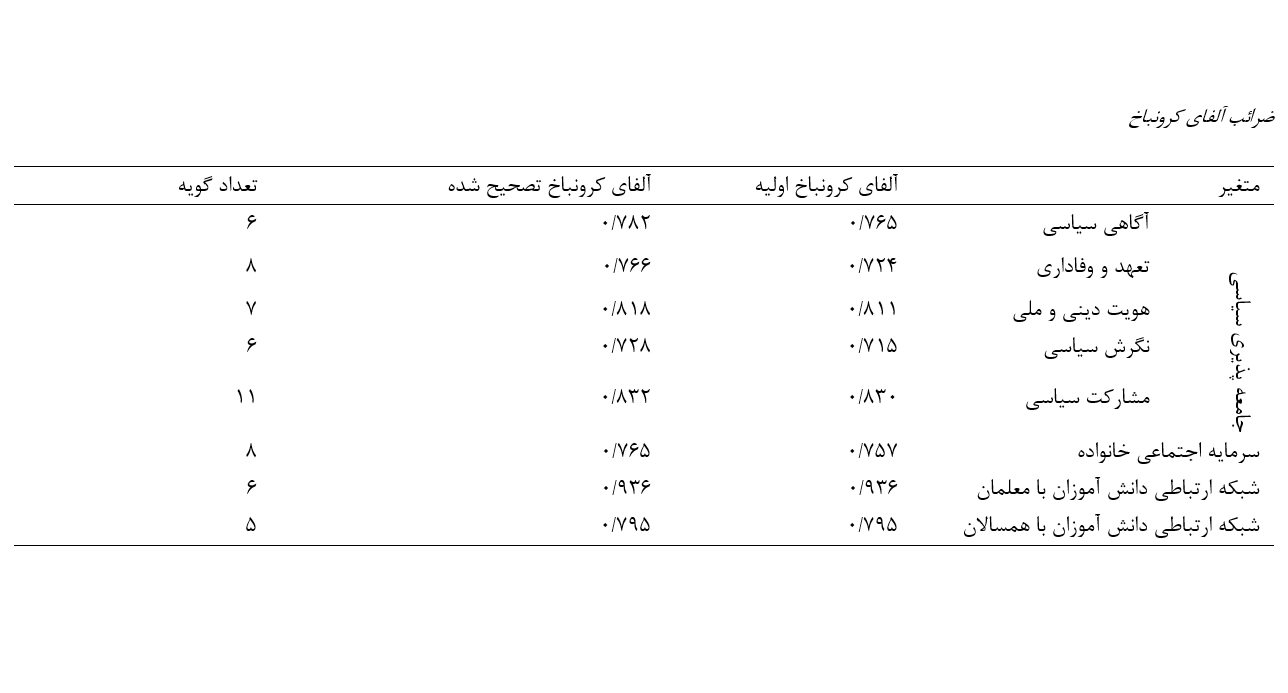The Role of Social Capital in the Political Socialization of Students in Iran's Education System (Case Study: Markazi Province)
Keywords:
peers group, teachers, political socialization, social capital, family, communication networkAbstract
In contemporary societies, the role of social capital in the political socialization of students is central to political discourse. Education, as the custodian of the political system and a pivotal factor in political development, serves as the primary agent for the political socialization of adolescents and youth within the framework of national political culture. This study examines the role of social capital in the political socialization of students in the education system of Markazi Province, Iran. When schools succeed in politically socializing students, a form of harmony and cohesion is fostered between society's constituents and its leaders, thereby facilitating development. Identifying factors influencing the political socialization of students is thus essential. This research employs a survey method to investigate the relationship between two variables: social capital and political socialization. The statistical population includes all high school students in Markazi Province, with a sample size of 388 individuals selected through multistage stratified random sampling. Data collection was conducted using a researcher-designed questionnaire. Findings indicate a significant positive relationship between the variable of family social capital and the political socialization of students. Additionally, the variables of students' communication networks with teachers and peers exhibited weak but significant relationships with political socialization. The validity of the questionnaires was assessed through face validity, and reliability was estimated using Cronbach's alpha coefficients.
Downloads








